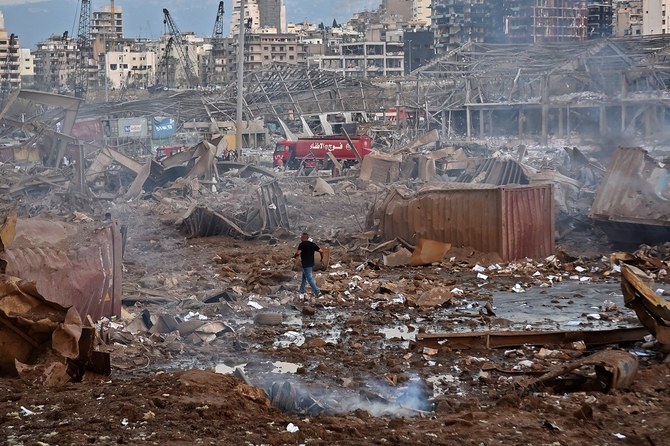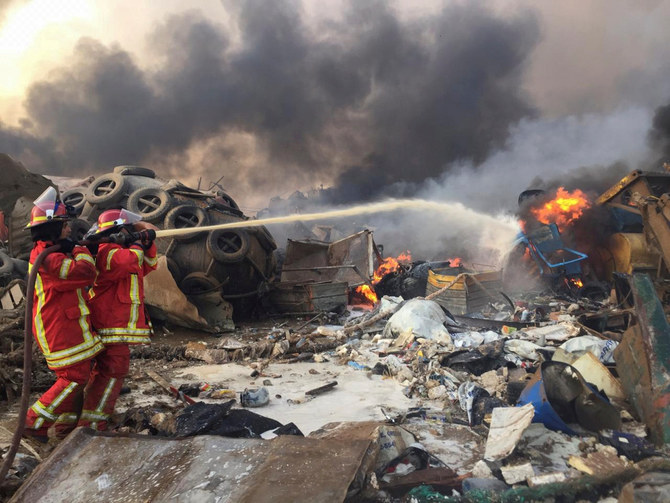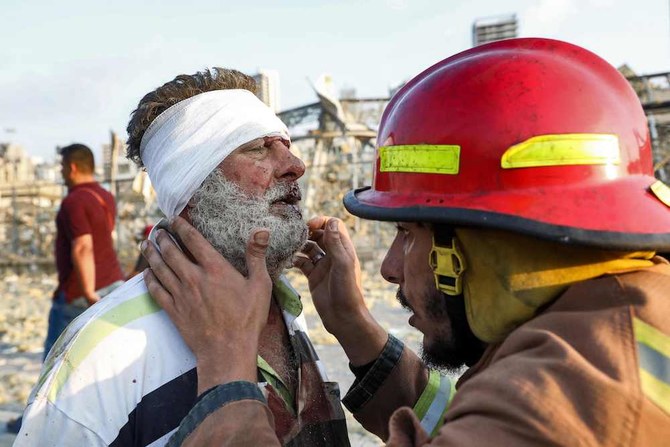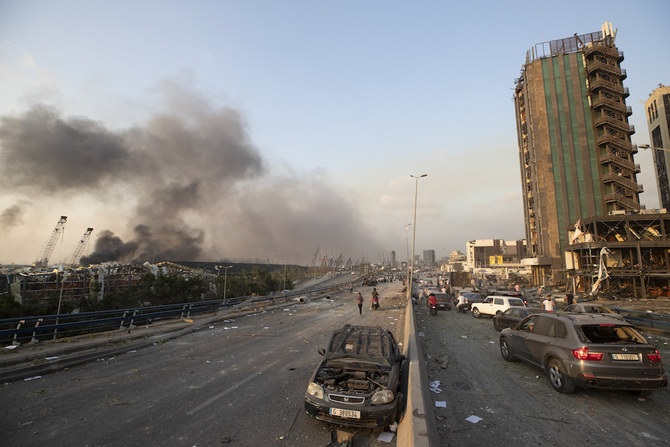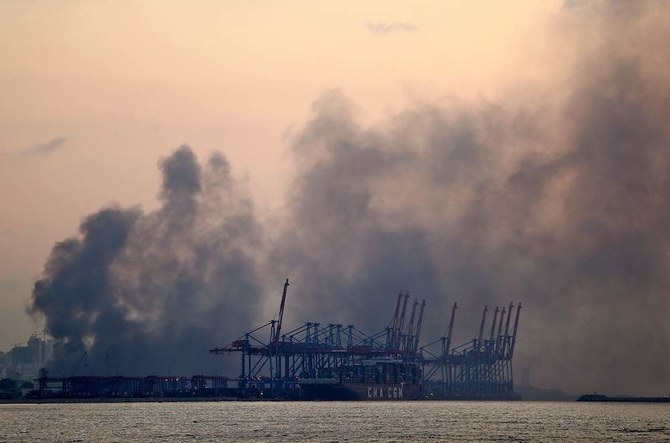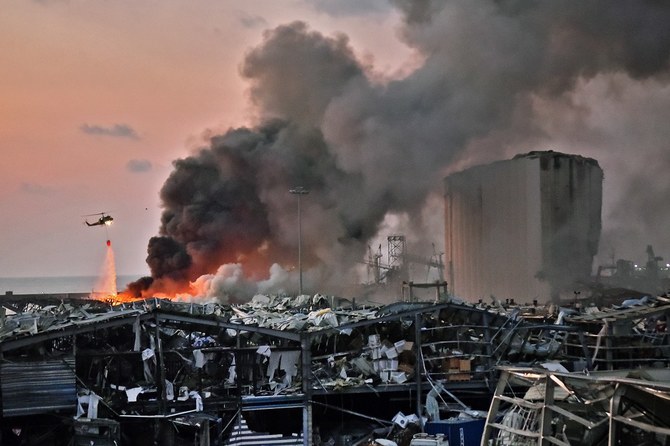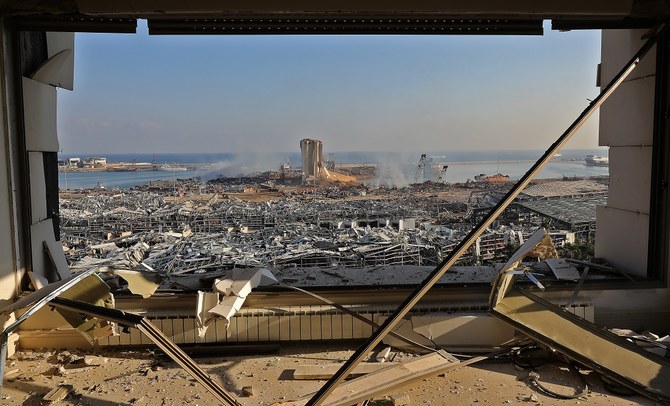BEIRUT: More than 135 people were killed and thousands were injured on Tuesday when a massive explosion ripped through the port area of Beirut.
The initial death toll was reported as approximately 73, but on Wednesday afternoon officials said the number of those killed now stood at in excess of 135.
In a short televised speech Prime Minister Hassan Diab appealed to all countries and friends of Lebanon to extend help to the small nation, saying: “We are witnessing a real catastrophe.”
He reiterated his pledge that those responsible for the massive explosion at Beirut’s port will pay the price, without commenting on the cause.
Footage shared by the Lebanese army on Wednesday showed the devastation at the ground zero of yesterday's blast.
When the blast happened windows shattered throughout the Lebanese capital and balconies were blown off apartment buildings as a giant plume of smoke soared into the air in nightmare scenes that witnesses said reminded of them of a nuclear bomb blast.
“What happened is like the Hiroshima and Nagasaki explosions. Nothing remains,” Beirut governor Marwan Abboud said after inspecting the the scene of the explosion.
The city’s hospitals were overwhelmed with injured victims, and the death toll was expected to rise overnight as the full scale of the disaster became apparent.
It began at about 6 p.m. with a fire at a warehouse in the port, a few small explosions as if from firecrackers, and then one giant blast that sent shockwaves throughout the city and was heard as far away as Cyprus in the Mediterranean.
A plume of white smoke turned pink, and then red, and fires burned for hours.
Among the worst-hit buildings was the HQ of the state power company, EDL, immediately opposite the port. Dozens of staff were injured, including the company’s general manager Kamal Hayek.
The blast happened during a meeting of the Lebanese Phalange Party in Al-Saifi, near the port, and Kataeb Party secretary general Nizar Najarian was killed.
Shocked residents poured into the streets from their homes, with many hurt by flying glass and broken doors and furniture. Some walked to the nearest pharmacy, while the more seriously injured were ferried to hospital by car and motorcycle.

Soldiers tried to clear the streets of dazed civilians, some of them drenched from head to toe in their own blood. Volunteers led survivors away to seek medical help, using their shirts as bandages.
Makrouhie Yerganian, a retired teacher who has lived near the port for decades, said it was “like an atomic bomb.”
“I’ve experienced everything, but nothing like this before," even during the 1975-1990 civil war, she said. “All the buildings around here have collapsed. I’m walking through glass and debris everywhere, in the dark.”
General Security chief Abbas Ibrahim said. “It appears that there is a warehouse containing material that was confiscated years ago, and it appears that it was highly explosive.” Experts said the plume of red smoke suggested the material was probably ammonium nitrate, a common agricultural fertiliser.

Lebanese firefighters work at the scene of an explosion in the Lebanese capital Beirut on Aug. 4, 2020. (AFP)
Messages of support and offers of help poured into Lebanon after the blast. The Saudi Foreign Ministry said the Kingdom expressed “its deepest condolences to the victims of the Beirut explosion.”
Lebanon’s Prime Minister Hassan Diab declared Wednesday a day of mourning, and said those responsible for the explosion would pay the price. “I promise you that this catastrophe will not pass without accountability,” he said.


